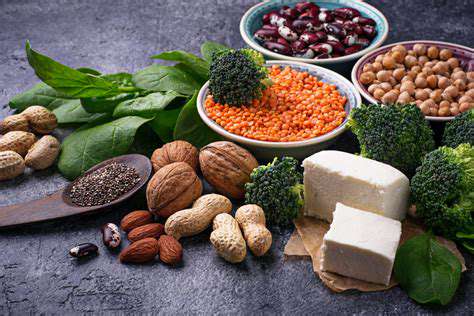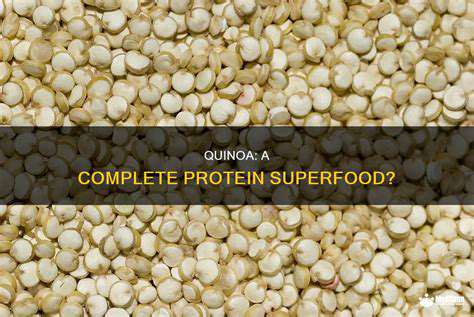Best Sources of Plant Based Protein

Proper posture plays a critical role in maintaining muscle tension throughout the day. When we slouch or sit improperly, certain muscle groups can become overly tight, leading to discomfort and strain. This tension can accumulate over time, making it crucial to pay attention to how we hold our bodies.
Tofu and Tempeh: Versatile Protein Alternatives
Tofu: A Staple in Plant-Based Diets
Tofu, a soy-based food, is a remarkably versatile protein source, widely used in various cuisines worldwide. Made from soybeans, it absorbs flavors readily, making it a fantastic blank canvas for culinary creativity. Its firm, silken, or extra-firm textures cater to diverse preferences, from stir-fries to soups, and even baked dishes. Beyond its culinary appeal, tofu is a significant source of essential nutrients, including protein, calcium, and iron, contributing to a balanced and healthy plant-based diet.
The nutritional profile of tofu varies depending on the preparation method. Often, it's pressed to remove excess water, which impacts its texture and nutritional density. This process can significantly affect its calorie and fat content. Proper preparation methods can ensure a delicious and nutritious addition to any meal plan, while still ensuring that you're getting the most out of this protein-rich food.
Tempeh: A Fermented Friend
Tempeh, another soybean-derived product, boasts a unique fermented profile that sets it apart from tofu. The fermentation process creates a nutty flavor and a firmer, chewier texture compared to tofu. This distinctive characteristic makes it an excellent substitute for meat in various dishes, such as stir-fries, sandwiches, and even as a main course in hearty stews. Furthermore, this fermentation process contributes to its rich nutrient content, enhancing its overall nutritional value and making it a valuable addition to a balanced diet.
Tempeh's firmer texture often lends itself to grilling, roasting, or even marinating. Its ability to absorb flavors makes it a popular choice for those seeking a protein alternative with a unique taste. While the fermentation process adds a distinctive flavor profile, it also contributes to the creation of beneficial compounds that can contribute to digestive health and overall well-being.
Nutritional Value of Tofu and Tempeh
Both tofu and tempeh are excellent sources of plant-based protein, making them valuable additions to a diet focused on reducing reliance on animal products. They provide essential amino acids, crucial for building and repairing tissues, while also offering a variety of vitamins and minerals. The presence of iron and calcium in both foods further reinforces their nutritional value, making them key components in a balanced diet.
A deeper dive into their nutritional profiles reveals that they contain varying amounts of fat, fiber, and other essential nutrients. While tofu is generally lower in fat, tempeh often boasts a slightly higher fiber content. Comparing these nutrient profiles helps in crafting dietary choices that align with specific health goals and dietary needs.
Culinary Applications and Versatility
The versatility of tofu and tempeh in the culinary world is undeniable. From savory stir-fries to creamy sauces and satisfying main courses, these plant-based proteins can be incorporated into an array of dishes. Their ability to absorb flavors makes them excellent candidates for marinating and grilling, and their textures can be easily adjusted to suit different preferences.
Tofu's soft texture allows it to be blended into smoothies, soups, and even used as a replacement for eggs in baking. Conversely, tempeh's firm texture makes it ideal for grilling, baking, or using in salads, showcasing its adaptability across various cooking methods. This culinary versatility makes them essential additions to any plant-based kitchen.
Choosing the Right Option for Your Needs
Deciding between tofu and tempeh often comes down to personal preference and the specific dish being prepared. Tofu's soft texture and ability to absorb flavors make it a great choice for dishes where a more delicate flavor profile is desired. Tempeh's firmer texture and unique nutty flavor profile make it ideal for dishes where a more substantial protein source is needed. Consider the desired texture, flavor, and overall cooking method when selecting the best option for your particular culinary creations.
Ultimately, both tofu and tempeh offer substantial nutritional benefits and culinary versatility. Exploring their diverse applications and understanding their individual characteristics allows individuals to make informed choices that align with their nutritional needs and dietary preferences. Integrating these versatile plant-based proteins into your diet can contribute to a more balanced and sustainable food choice.

Read more about Best Sources of Plant Based Protein
Hot Recommendations
-
*Guide to Managing Gout Through Diet
-
*Best Habits for Financial Well being
-
*How to Build a Routine for Better Mental Health
-
*How to Eat Healthy on a Budget [Tips & Meal Ideas]
-
*Guide to Practicing Self Acceptance
-
*How to Incorporate More Movement Into Your Day
-
*Guide to Managing Chronic Pain Naturally
-
*Guide to Building a Reading Habit for Well being
-
*Top 5 Weight Loss Supplements That Actually Work
-
*Best Exercises for Postpartum Recovery [Beyond Abdominal Work]










